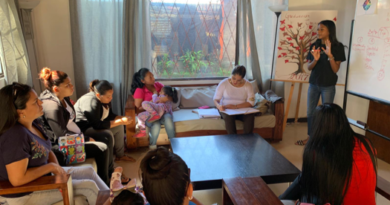How To Unplug From Our Technology
By Danielle Paschall
Staff Writer
Electronics have become a daily necessity for Lynn students and staff members. However, some Fighting Knights are fighting back with a few tips on how they can prevent electronics from consuming their lives.
For many students, technology is everywhere. They follow students into the classrooms, to the dinner table, to the beach, to the bedroom and even to the bathroom. Mostly, people are just trying to kill time on their devices to avoid completing daily tasks like paying their bills, working or doing schoolwork.
For some, picking up one’s head and taking in the surroundings may seem tedious and boring, but it can actually allow them to become present and in the moment. “Life is already too short,” said Jackie Sullivan, senior. “Even if every moment in life is not super enjoyable, being present in these moments helps us to better appreciate the moments that are super enjoyable.”
Sullivan typically calls her parents, who live at a long distance from her, after class or when she is on the move. But she makes an effort to be present around friends.
These relationships require just as much attention; the type of attention that many like Sullivan refer to as the “real type,” rather than just a like on Instagram, or a re-post on Facebook. “After I lost my iPhone for a week, I realized just how much time I was spending on my phone,” said Sullivan. From then on, she kept a conscious effort toward limiting how much time was spent on her devices. According to Sullivan, it actually helped her wean off of her “cellular addiction.”
A tip that has being successful in cutting out temptation for using game and social media apps before bed and in class is, “relocating and reserving certain areas for using electronics,” said Jose Suarez, junior.
One trick that Suarez suggests, is to store devices in a backpack until the end of class and to use a pen and paper instead. By doing this one can limit their exposure and temptations to their devices. “Something that has worked for me in the past, is keeping all electronics out of the bedroom and in another area of the house, or start certain time limitations for the usage of your device,” said Francisco Bunge, junior.
Essentially, the most successful approach for preventing electronics from consuming the lives of Sullivan, Suarez and Bunge has been the approach of, ‘out of sight, out of mind.’ Whether that means downloading an online timer that sends an alert after 30 to 60 minutes of internet usage, keeping a designated room strictly for the use of electronics in the house, or striking up a conversation on the way to class instead of checking Facebook, spending more time in the present can be a real gift.




